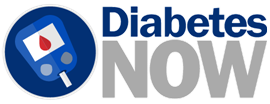Premier - Local Pharmacist
-
Insulin
Insulin is a peptide hormone produced by beta cells of the pancreatic islets; it is considered to be the main anabolic hormone of the body. It regulates the metabolism of carbohydrates, fats and protein by promoting the absorption of glucose from the blood into liver, fat and skeletal muscle cells.
-
Loading the player...
Insulin and what it is used for <p> Endocrinologist: What is Insulin and What it is Used For?</p>Endocrinologist: What is Insulin and What it is Used For?
-
Are there Multiple Ways to Take Insulin?
There are generally three main ways to take insulin. The first would be premixed insulin, where the product has already been mixed, perhaps short- and intermediate-acting insulins in the same vial; inject twice a day, usually breakfast and supper.
Another common way of doing it is to take a long-acting insulin once a day, often at bedtime, and still take your diabetes pills at mealtimes.









